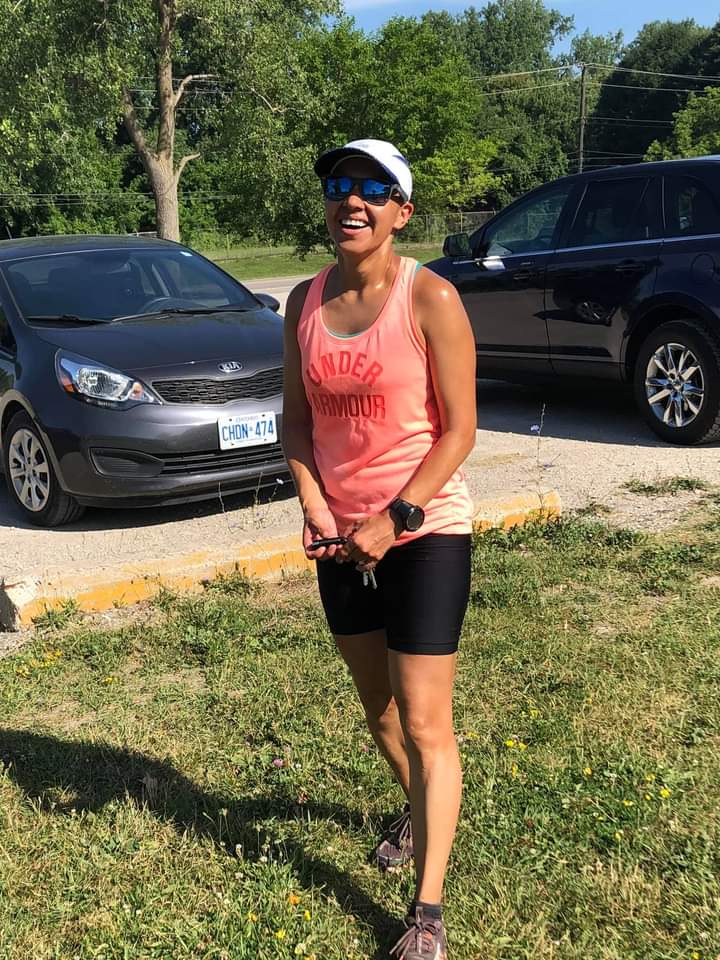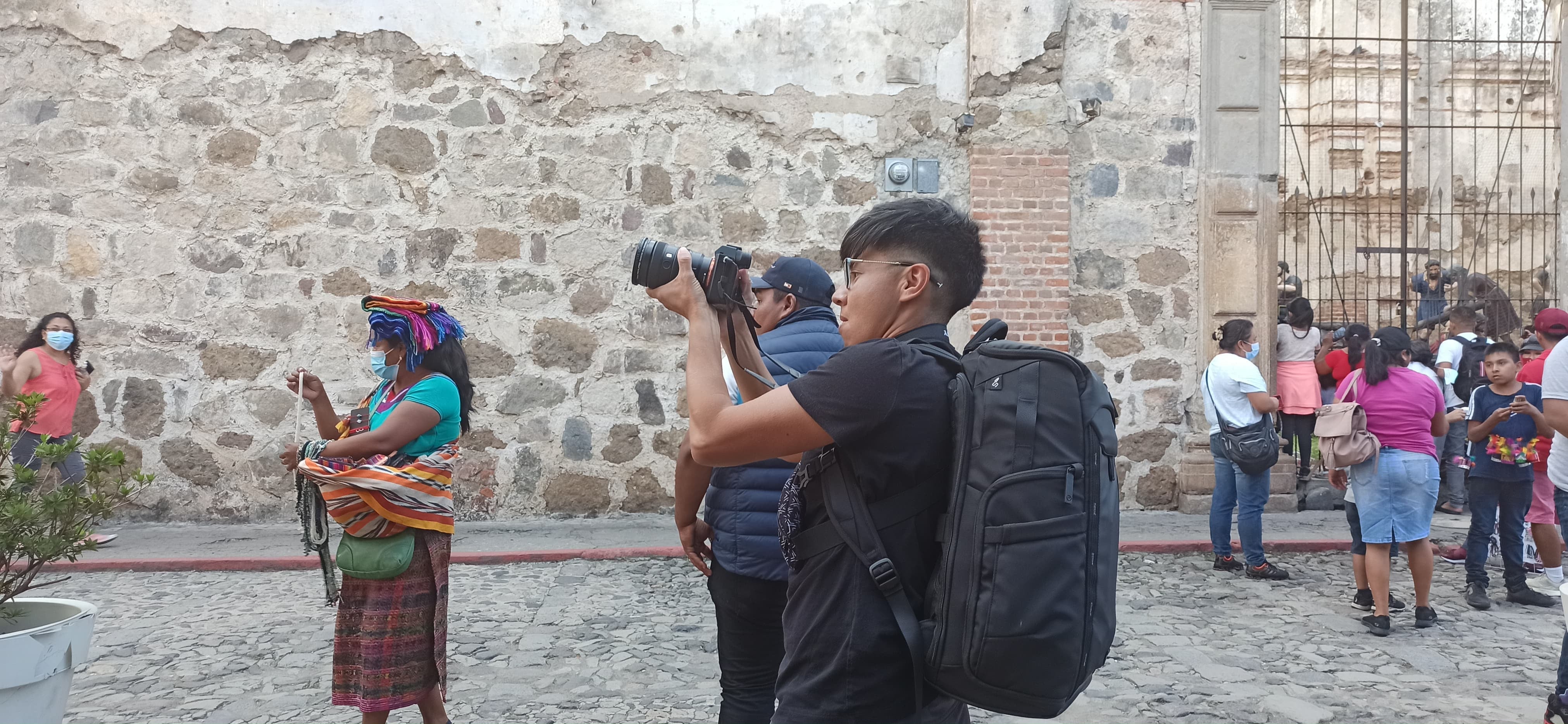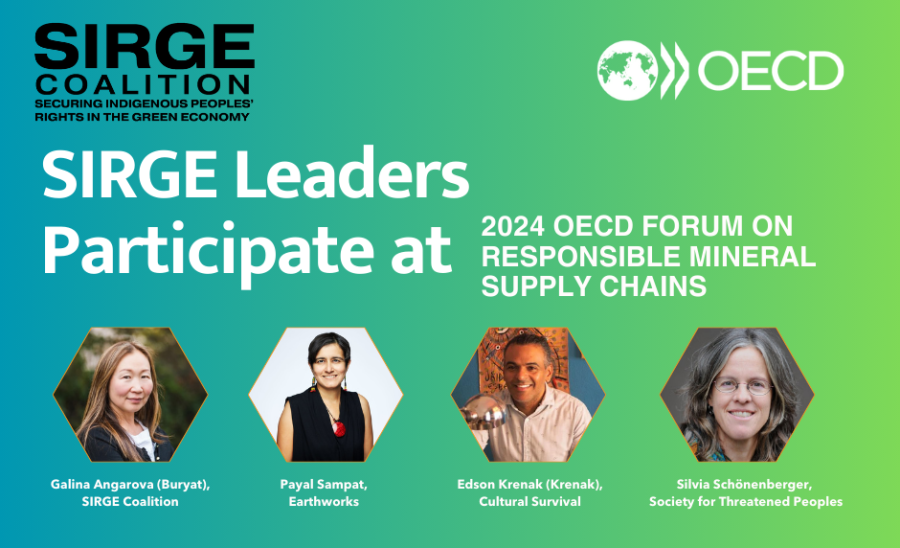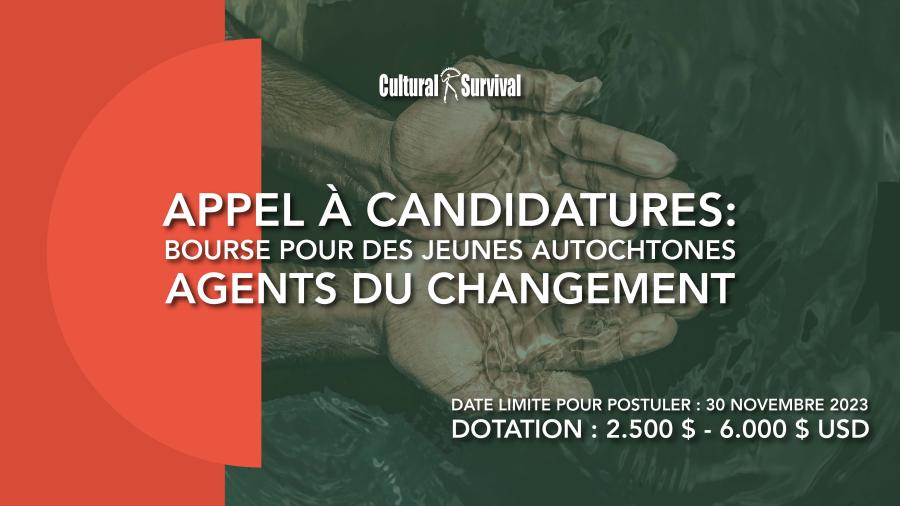
Meet Alinam Cojtí Ren (Maya K’iche’), a lively spirit who is breaking the norms of gender one run at a time. Cojtí Ren was born and raised in Chichicastenango (also known as Chichi), a small town in a mountainous region of northwest Guatemala that is famous for its local artisan market, and where the Maya K’iche’ culture and language is still vibrant. At 18, she migrated to Canada, where she was able to fully connect to her true self, including her sexual identity. Running has been part of a healing journey. Cojtí Ren started running when she was a child. She enjoyed running but never thought it would lead to ultra-running. In 2009 when she moved to Ontario she ran her first half marathon, then a full marathon. Now 41 she has competed in multiple ultra-marathons (any distance greater than a full marathon, 26.3 miles) in Canada and the United States. At this moment, she has seven 100-mile ultra runs under her belt. Apart from running Cojtí Ren holds a bachelor's degree in General Science but had challenges in finding a job related to her field and worked as Machinist in the car industry for 7 years then transitioned to the engineering/designing department for 2 years. Unfortunately, in 2022 her health and mother's health decayed and she took 1 year off from work returning to a different industry in Building glass designs. Besides her regular job, she is a freelance photographer and enjoys sports photography.
Growing up, Cojtí Ren struggled to express herself and did not feel safe to speak out. She recalls her first experience of internal conflict with her sexual identity: “I knew I was lesbian when I was six years old. I remember that my dad bought me a skateboard and I would play in the house. I would have a broom with me, and I would push myself on the skateboard. In my head, I would think, I'm the captain of a ship and I have to go rescue the princess. Why the princess? Why was there not a prince? I don't know why, but it was just like that in my head. Nobody said anything to me. Nobody told me stories. That was the game that I had in my head, and as I grew up, I realized, I'm different. I'm not like everybody else. I like the same gender. When it came to dressing, it became a problem. For me, the corte and huipil were an imposition. I didn't feel comfortable. I wanted to wear pants and a shirt like the men. I didn't feel happy, and I didn't feel identified with my traditional clothing. So, it was a struggle, growing up like that.”
In Guatemala, Indigenous Peoples’ traditions, cultures, and languages are thriving even under conditions of political oppression. Wearing traditional clothing like the traje, which consists of the huipil (blouse), faja (woven belt), corte (skirt), and cinta (headband), is a visible form of resistance. The textile patterns used in traje vary from community to community in combination of colors and symbols. For Cojtí Ren, promoting her Maya K’iche’ culture is not as easy because she does not feel her identity is represented in the traje. “In my home country, [being 2SLGBTQ] was taboo. It didn’t exist. That is why I thought there was something wrong with me and I was not normal, because people didn’t talk about it. It didn’t exist at schools. It didn’t exist on TV or radio. It was taboo. That is why I couldn't come out. I did not feel safe talking to anybody until I came to Canada. When I saw people who are like me, who are themselves, that is when I felt safe. But in my home country, it was very hard. That is why I kept it to myself.”
Coming out to her family took years of healing and strengthening her relationship with her family, especially her mother. Cojtí Ren says it was challenging for her to deal with her mother’s difficulty in accepting her for who she is. Ultimately, it was the power of unconditional love that strengthened their relationship, and she received her mother’s respect. “For my family, it was very hard in terms of religion rather than culture. That was the struggle, especially with my mom. It's not my mom's fault. It's because the Bible doesn't say anything about same sex relationships between females.”

Reflecting on her childhood and adolescence, Cojtí Ren says she grew up feeling confined from expressing her true self, which created a deep sense of grief and loss that caused her to retreat into herself. “It's been a long journey because I internalized everything. I grew up not sharing anything. It got to a point that I attempted to take my life a couple of times, especially when I drank, because I did not know how to deal with the pain; I did not know how to get rid of it. I thought that drinking would make it better, but it's completely the opposite. Drinking releases more pain, it expands it. I tried to harm myself a couple of times, and one time it was extreme. I had a partner at that time, and I scared her a lot. The next day she left me and I realized that I was not the right partner for her because I scared her. I was supposed to love and protect her, or at least make her feel safe. I told her that I would change and asked her to give me a second chance, and she did. That is when my healing started. I realized I was getting too close to doing something too crazy, and I wouldn’t be able to go back, so I better change. I started reading, I started listening to podcasts, I started exercising more, I stopped drinking, and now I'm here.”
Cojtí Ren says that embarking on her healing journey was both critical and challenging. She had to confront her adult self while embracing and nurturing her inner child, who did not get to experience what most people did growing up. “It took a long time because my whole childhood, I convinced myself that I'm not normal. I convinced myself that there was something wrong with me. Even starting adulthood, I still thought there was something wrong. It took a lot of time to heal and accept myself. I didn't really start living my life until I was maybe 28 or 29. Everything before that was a lie. I can't recover that time I lost; that time is gone. I did not have a first kiss. I did not have a first girlfriend. I was not as sexually active in the way I wanted to be. All that is lost, and I can't get it back. So now, I try to take advantage of the time that I have. In my late 20’s it’s when I realized, I can't do this anymore. I can't lie to myself anymore. That's when I decided, that's it, I'm going to reject anyone that doesn't like the true me.”
More than a decade since that awakening, Cojtí Ren has found peace and acceptance with herself first and foremost, and also with her family, community, and home country. At first, going back home was a challenge because she did not feel safe. It took seven years to finally visit Guatemala. In the beginning, people would confuse her for a man and make presumptions about her pronouns, addressing her as sir and questioning her clothing and hairstyle. However, family was important for Cojtí Ren, and staying connected to her Indigenous roots was essential. Her approach in these encounters has shifted to one of empathy and acknowledgement that there is a lack of education and resources in Guatemala around 2SLGBTQ issues. Now, returning home to visit family and relatives is no longer an anxious experience.
“At the beginning, I didn't like going back home. ‘Back home’ wasn't home. I ran away from home, so it wasn't a safe place. The first few times that I went back, they thought I was a man. They would call me sir, or they would ask me, do you belong to the Army or the Navy? Is that why you have your hair like that? And I would feel very bad. But I missed my parents and my family a lot, so it didn’t stop me from going back. Now I just laugh. I tell my sisters and we laugh together because they call me sir. And sometimes [people] realize they made a mistake and they feel bad and apologize, but they don't do it in a mean way. They're just not used to seeing girls with short hair. So I see it in a different way and I don't get offended anymore. The last few times that I've gone home, I have felt more acceptance from my family. My aunts, my uncles, my cousins, they don't care how I look, they don't care about my preference. So I feel at home, and that makes me want to go back.”

After years of feeling isolated and withdrawn, Cojtí Ren finally feels liberated to express herself and speak her truth without fear of judgment. A crucial part of her path of spiritual growth is a dedication to wellness. “I'm working on myself right now, physically and spiritually. I'm inclined toward Buddhism right now because that's what I have more access to and I identify with the beliefs. This is the first time I've been alone(single) in many years, and I feel like I'm in my 20s, like I'm just reborn. So I'm enjoying myself. I'm enjoying my life, I'm enjoying my passions, and I need to stay here a little bit longer.” Running has been another important outlet in Cojtí Ren’s healing process. She has already competed in several ultra-marathons, and is training for Indiana-100 mile ultrarun aspiring for Cocodona-250 mile run."
"Running has been something that has healed me a lot. For some reason, it gives me peace. Running is my life. It makes me happy. When I feel down I run and I feel better. It's like therapy! It is like meditation too! You get to learn a lot about yourself. I think running has saved me in the darkest moments. I find myself when I run. So that's how I started; it was more for my own healing," she says.
In addition to running, Cojtí Ren has also tapped into her creative spirit. “Right now I am interested in photography, video content creation. I love creativity. I love music. I like photography. That is my passion at the moment. When it comes to sports, I have integrated jiu jitsu and kickboxing into my running. I'm a very active person,” she says.
For whatever experiences she missed out on in her childhood, Cojtí Ren says that being with herself now has been the best gift she could receive, and she has given much reflection to the importance of nourishing one’s inner self and not giving up on oneself. “If you're in my situation, depending how old you are, go to a safe place, find somebody to talk to. I know here in Canada, there are helplines, there are groups that can help you. You can reach out. But I know one thing: if you don't speak up, nobody's going to come to help you. Nobody's going to know what you're going through. You have to speak up, and you have to look for a way out. If you're a minor, you can't run away, but there are helplines and you can talk to somebody, and they can give you advice on what to do or how to heal if you're not in a healthy environment.”



